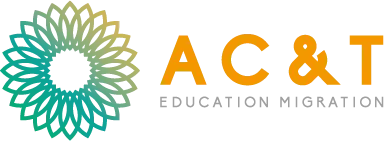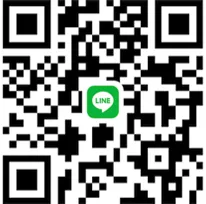Depending on where you live, it means this weekend you might be able to partake in some retail therapy at the shops, visit your mates, or even go fishing and camping.
With the coronavirus threat at different levels across Australian jurisdictions, some governments have decided to keep all their restrictions in place, others are slightly taking their foot off the pedal, while one has gone hard in winding back its measures.
These are all the things your government now says you can and can't do:
Queensland
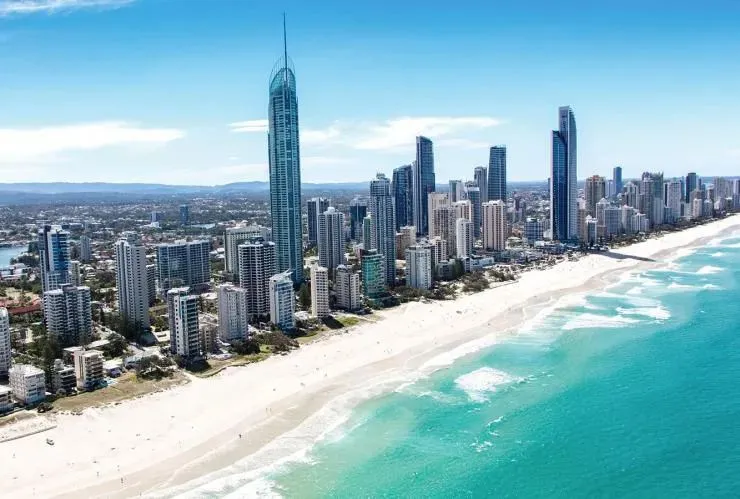
From Saturday, Queenslanders will be able to leave their homes for recreation and the distance they can travel has been extended to 50 kilometres.
The new rules mean residents can now:
- Go for a drive
- Ride a motorbike, jet ski or boat for pleasure
- Have a picnic
- Visit some national parks— see the list here
- Shop for non-essential items
- But physical distancing guidelines remain in place and outings are limited to members of the same household, or an individual and one friend.
Queensland Police said it would be deploying an extra 140 officers to patrol increased levels of outdoor activity in the state.
Northern Territory
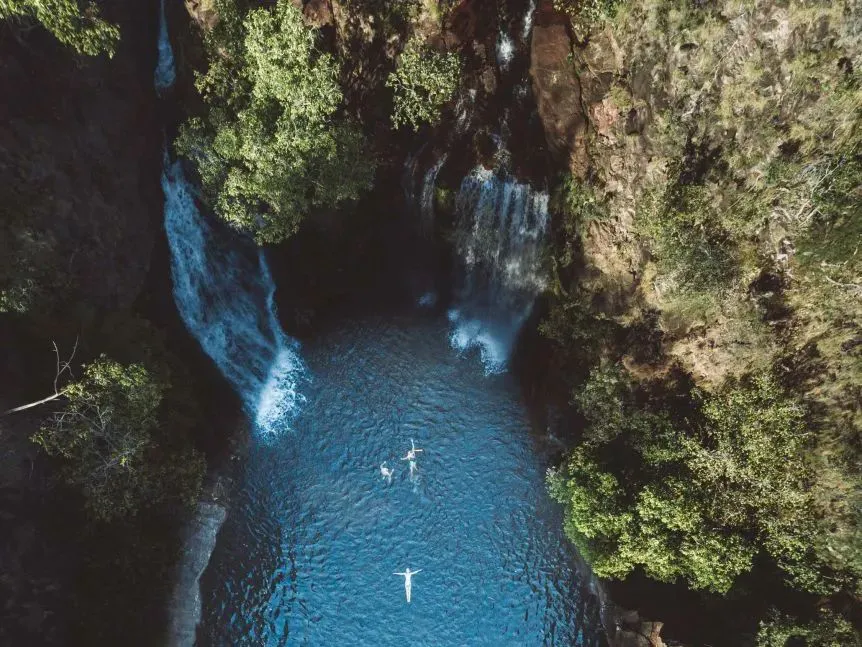
From noon Friday, Territorians will no longer be subject to the 10-person limit guideline for outdoor activities.
With no recorded coronavirus cases for over three weeks, the NT this week announced the country's most liberal wind backs, with Territorians able to fish, camp and play non-contact sport from midday.
The NT Government has released a list of parks and recreation areas across the NT that will no longer be subject to outdoor restrictions from midday, while Kakadu, Uluru and Nitmiluk will remain shut.
The new rules mean there will be no limit on wedding and funeral attendance as long as social distancing guidelines are adhered to, while playgrounds will also be opened for the first time in weeks.
Other outdoor activities permissible in the NT from noon are:
- Bootcamps, non-contact sports, and outdoor gatherings
- Sports including golf and tennis where distancing can be maintained
- Pools and water parks
- Camping, boating, sailing and fishing
- The eased restrictions apply to communities within Designated Biosecurity Areas, but these areas will remain closed to all non-essential workers until at least June 18.
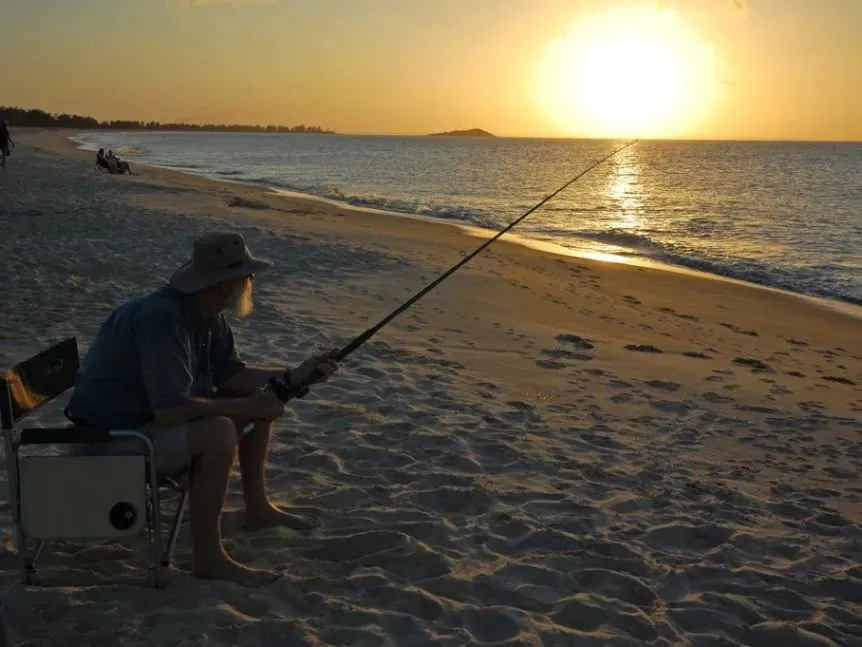
Premier Mark McGowan began what he called the state's "cautious relaxation" of some coronavirus measures earlier this week.
The two-person rule has been eased to a 10-person limit, so small groups can now meet up either outdoors or inside.
The easing of the two-person rule means boot camps and some other forms of group exercise will be allowed again providing physical distancing is maintained.
Gyms, outdoor gym equipment, playgrounds and skate parks remain closed.
Restrictions on home inspections have been eased, with inspections allowed to go ahead if the 10-person rule is followed.
The WA Government also announced a range of non-contact recreational activities will be allowed again, including:
A picnic in the park with friends (so long as there's not more than 10 of you)
- Having up to nine of your mates around for a barbeque, so long as there's space for 4 square metres per person
- Soccer at the park with your friends, so long as there's no contact (and no more than 10 of you)
- You can go fishing or play tennis or golf
- You can pack the tent and go camping — but campsites are only open to those with no other accommodation options
- Or grab your hiking boots and go on a bushwalk or hike
- You can take your boat out for a sail — just don't try going to Rottnest, as moorings there are still not open
- Dining in is still banned, so you can only get takeaways for now.
Strict measures remain in place on a range of other activities and venues like pubs, nightclubs and churches, as Mr McGowan said WA must stay vigilant ahead of lifting restrictions too early.
New South Wales
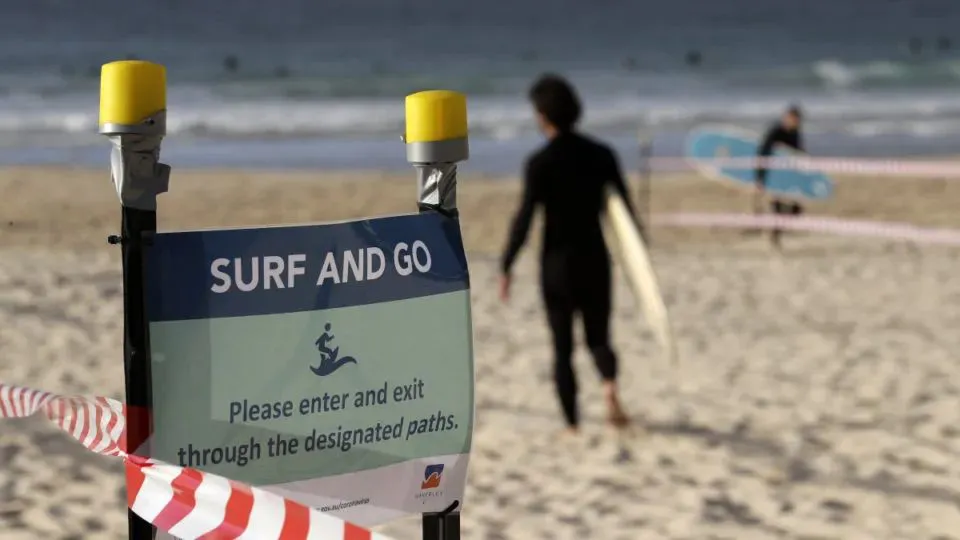
The new rules allow people to visit friends in their homes. It means groups of two adults — and their children if they have any — will be able to visit other households.
The NSW Government said the decision to relax restrictions was made to improve mental health and reduce social isolation.
Access to Bondi, Bronte and Tamarama beaches is now permitted on weekdays between 7:00am and 5:00pm, but only for the purposes of swimming and surfing.
The beaches remain closed to other forms of access including walking, jogging and sunbathing. Elsewhere in Sydney’s eastern suburbs, Coogee, Clovelly and Maroubra beaches are open daily 7:00am-5:00pm for activities including swimming and soft-sand running, but people are encouraged to leave immediately after exercising.
The beaches in the council areas of Randwick and Waverley, which covers Bondi Beach, were closed last month after images of a packed Bondi made global headlines.
South Australia
South Australia has not announced any formal easing of restrictions after initially taking a slightly more moderate approach to coronavirus rules than some of the eastern states.
Wineries, breweries and cellar doors are currently allowed to operate takeaway services after restrictions were relaxed earlier in the month.
However, there has been no move as yet to relax the rules on social gatherings, which currently remain capped at 10 people maintaining appropriate distance.
Victoria
For Victorians, stage-three restrictions are likely to stay in place until Victoria's state of emergency can be lifted on May 11.
Tasmania
On Thursday, Premier Peter Gutwein told Tasmanians that easing coronavirus restrictions would have to wait.
But he flagged any relaxation of measures would likely begin with parks, reserves and recreation spaces.
ACT
The coronavirus-free ACT, which on Thursday become the first Australia jurisdiction to neutralise COVID-19 by reaching no active cases, has no formalised plan to wind back restrictions.
Public school students returned to remote learning this week, with a number of 'hub' schools open to provide supervision to children of essential workers.
